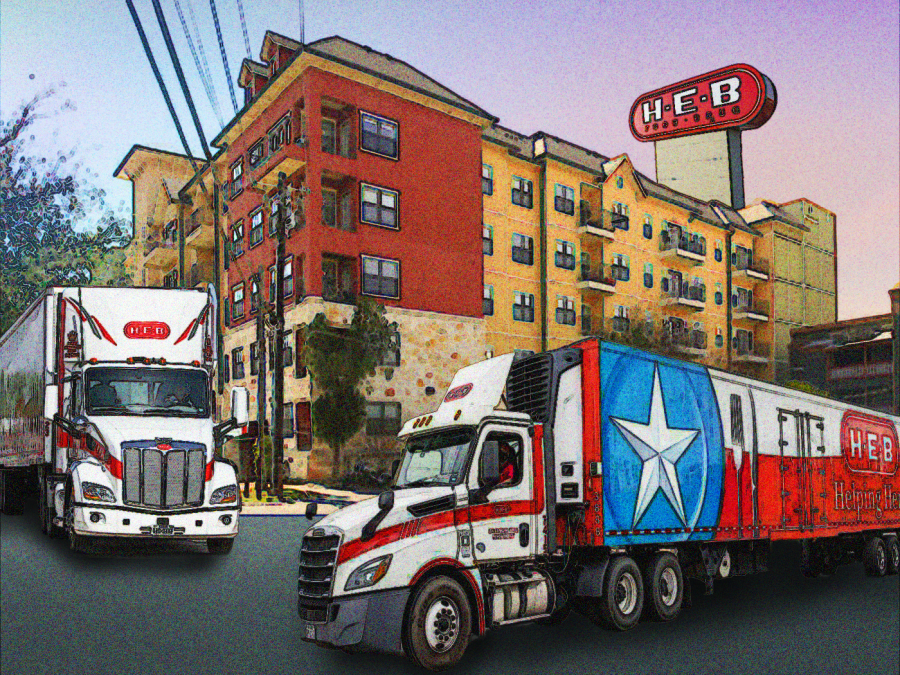Expand UT’s partnership with H-E-B
February 12, 2023
The University of Texas recently announced that they were partnering with H-E-B to provide on-campus students with easier access to groceries. H-E-B has named the University a Campus Delivery Hub, which allows students to order groceries to be delivered to four different locations on campus.
This sounds like a great convenience, but at UT, most students live off campus, since on-campus housing only accommodates around 7,800 students. Many of these students reside in West Campus, which is close to the main campus buildings but far from any formal grocery store.
These students have the same hardships accessing groceries as students on campus: lack of transportation, lack of excess money for traditional grocery delivery and lack of time to shop for groceries. However, they don’t have access to the same privileges — the H-E-B Delivery Hub — as on-campus residents.
With the announcement of grocery delivery to campus, it is time to start expanding the convenience to off-campus students.
While the University’s official statement does claim that door-to-door delivery is available for off-campus students, the details of this claim are murky. Is this delivery just the same service as the general public receives? Are off-campus students accessing the same perks as those on campus?
As college students, life is busy. Between classes, organization meetings and homework, no one can or wants to spare extra time for grocery shopping.
Sofia Messer, a second-year philosophy major, said they usually shop for groceries on the weekends, since their “school days are from nine to five,” with homework in the evenings.
When trying to acquire healthy food options, having so little time to shop for groceries leaves students no option but to turn to easier, unhealthy options. While students are going from class to class, the fruits and vegetables they bought the weekend prior are going bad.
Soncia Reagins-Lilly, Vice President for Student Affairs, declined to comment but referred to the University’s statement saying that the new delivery service is “a great resource for students (…) who don’t have transportation beyond campus.”
But not only on-campus students struggle with access to transportation. Many students residing in the areas around campus don’t have access to vehicles. This lack of easily-accessible transportation compounded with H-E-B’s lack of off-campus delivery creates even greater barriers to finding healthy, affordable food options.
Even so, students living off-campus have the ability to get their groceries delivered to their door from any third-party delivery service. However, the fact of the matter is that all UT students deserve to have access to the same services and privileges. Many students don’t have the excess money to pay for grocery delivery, but that doesn’t mean they deserve to lack access to groceries that other students can receive.
On the subject of grocery delivery, Messer said, “I’d like it, but I’ve just never done it because of the price and I’m not sure how that would work with living (off campus).”
If there won’t be a dedicated grocery store within walking distance of campus anytime soon, UT must work to ensure that all students have easy access to healthy food. The University needs to make its commitment to all students, regardless of location, clear.
Bradford is a Plan II sophomore from Fort Worth, Texas.





